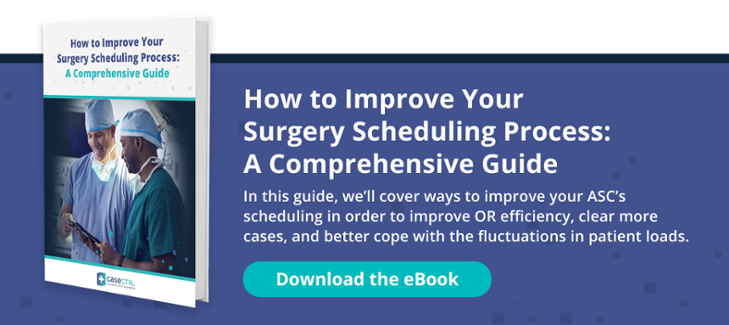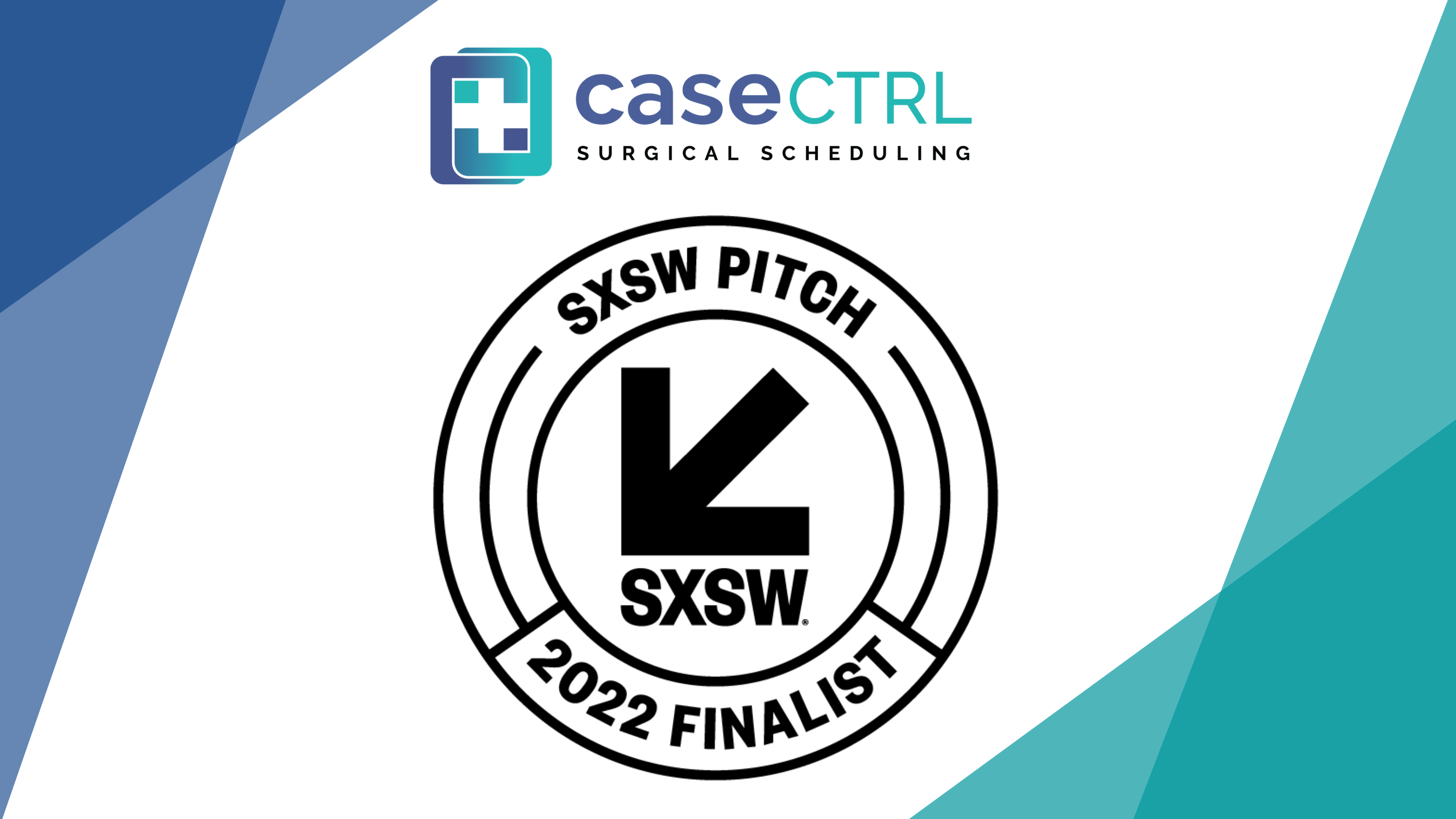A 2016 estimate showed that the U.S. healthcare system loses $150 billion to missed patient clinic appointments. The same report revealed that patients miss between 5 and 30 percent of appointments, each costing about $200 or more.
The impact of no-shows for surgeries is an order of magnitude higher as surgeries have more variables — the surgeons, helping staff, operating room, and other costs. A study by Tulane University revealed on average one missed surgery can cost upwards of $7100. The Tulane study found those patient no-shows were a common cause of cancellations, with 30% of patients failing to show up on the day of surgery due to transportation issues, uncertainty regarding the date of the procedure, or simply forgetting about the appointment. The same study found that nearly one-third of Tulane's cancellations stemmed from issues at the hospital, like a lack of available equipment.
Surgery Scheduling Challenges
Hospital administrators apply scheduling systems to allocate surgery resources — the OR to assign, surgeons’ requests, the staff to assist, and the patients to book for surgery. This is a complex process since the hospital must account for the following:
- Cost – A fully-staffed OR costs about $1,000 per hour to run. ORs should only be open when they are in use or else the hospital loses money.
- Surgeons’ requests – Hospitals must do their best to honor surgeons’ time-slot requests.
- Interruptions – The unpredictability of the hospital environment throws time schedules into disarray, and the impacts can ripple to cause even more losses.
It is also difficult to predict when surgery requests will come and how long certain surgeries will take, but hospitals must still find ways to accommodate these uncertainties. Surgery scheduling apps can go a long way in limiting the losses caused by inefficient or unpredictable patient scheduling and management.
If you’re looking for a surgery scheduling app, there are many qualities to evaluate, not just its price. The same vetting process should be carried out for free apps as for premium-rate apps, as these qualities contribute to patient safety and the security of their information. Learn below the qualities to look for in your ideal surgery scheduling app.
HIPAA Compliance
The Health Insurance Policy and Accountability Act was passed in 1996 to protect and keep private individuals’ medical records and personal health information (PHI). All healthcare providers, as well as healthcare-related mobile and web apps, must be HIPAA compliant according to the Act.
It goes without saying that all healthcare-related software that deals with protected patient health information must be HIPAA compliant. Patients expect their information will be protected and there are large fines and consequences for not adhering to HIPAA regulations. Moreover, any software you are considering for surgical scheduling must uphold the strictest security standards stipulated by the Act.
This is of important note to any practice using the free versions of Google or an Outlook calendar for scheduling appointments. Since neither was designed with HIPAA compliance in mind, the use of these services puts you at risk. For example, entering PHI into Google Calendar is not permitted unless specific HIPAA requirements have been met. Not only will you have to upgrade to a paid version of Google but you will also need to have a Business Associate agreement with Google on file. Even with every requirement checked off, you’ll still need to ensure account settings are properly configured. No EHR will be willing to integrate or share data with a non-compliant app.
Seamless EHR Integration
The Electronic Health Records (EHR) system that you use is the foundation of an effective and efficient surgery scheduling app. The EHR system partnered with the app should be stable, user-friendly, intuitive, and easy to customize and update.
When looking for a surgery scheduling app, review the EHR integrations the platform allows. If you already have an EHR, you need an app that integrates with it without extensive customization. Seamless EHR integration enables patient information sharing/updates to improve patient experience, manage their communication, process payments, and anticipate any complications occasioned by details in the patient’s history. Most EHRs have adopted the FHIR/HL7 communication standards for interoperability. Make sure the surgery scheduling software you use has an application programming interface (API) compatible with this common standard.
Scheduling Protocol Automation
The purpose of surgery scheduling apps is to automate most of the administrative/management processes related to appointment booking and procedure scheduling. Healthcare automation through powerful AI-driven algorithms is the future of all surgery scheduling software.
Most vendors claim that they have scheduling automation, but often this doesn’t extend beyond the surface level, which can mean that your patients and staff end up having to do more work. These three simple questions can help you to distinguish true automation from shallow automation:
- How much time does the software consume for the staff to register a patient for surgery? Is the software a glorified form, or does it actually integrate intelligent algorithms to make registering a patient for surgery a quick and seamless experience?
- Is the application integrated into your workflow, operating in the background, but also available to help you find relevant information?
- What tasks can your software accomplish independently? What tasks are your team relieved of as a result of the software automation? Can you measure the time it saves your scheduling team? Your ideal app should be able to initiate, run, and terminate tasks with no human intervention.
Leveraging AI can help with decision intelligence, which is often where human intervention is needed most. With true automation, for instance, patients scheduled for surgery can organize their clearances and lab work with little staff intervention using the AI assistant to help determine their tasks.
Integrated Dashboards
Integration refers to the way two software solutions work together. Surgery scheduling apps are often integrated with EHR systems and healthcare management systems. For example, the app should be able to update the practice management system when a patient reschedules or cancels a surgery.
With the right integrations, your front office staff doesn’t have to constantly update the practice management software with changes from the app. This, in turn, saves time and effort. What’s more, the integration can reduce patient wait times, increase access, and improve customer satisfaction. Patients can get surgeries scheduled more efficiently, and the system can run a waiting list to fill last-minute surgery cancellations.
Surgical Calendars
Almost all hospitals have limited OR and surgical resources. This means that at any one time, there are more patients looking for surgical assistance than surgeons performing the job. Applying AI and automation can help optimize surgical calendars, which involve a classic case of merging patient needs, level of priority, and resource availability. One of the most common challenges surgical facilities face is efficiently managing surgeons' underutilized block time. Block time is a surgeon’s set hours available in the operating room. Good scheduling software will identify opportunities to maximize the surgical throughput to help surgeons with unused block time share under-utilized hours with their peers.
AI-Enabled Patient Communication
Finally, low-level patient communications should be easily managed by an AI-driven chatbot or voice assistant to free up staff time for more important tasks.
For example, a patient may message a scheduler to delay surgery. A surgery scheduling application should be able to readily handle this common request. Frictionless mechanisms to allow patients to propose new times for surgery or automated tools to follow up with patients not ready to finalize a date are essential. An assistant then can easily confirm the desired time slot or suggest other open slots for the patient to pick from.
Similarly, if an interruption or delay originates in the surgeon’s office, the AI assistant can take over appointment rescheduling and inform the patients. Your app should be able to handle much of this without human intervention. With the number of parties involved in surgical scheduling, having an automated mechanism to accomplish these functions can save hundreds of hours of administrative time a year.
The Future of Surgery Scheduling
Healthcare automation and AI in healthcare are the future — and that future is here. When looking for a surgery scheduling app, you need a robust and intuitive yet user-friendly solution. Such an app can be used by both patients and non-technical staff with ease. Think about your practice in its entirety and use the above qualities to shortlist solutions that will truly help your business.
If you’d like to learn more about CaseCTRL’s comprehensive surgery scheduling solution, we can help. With our solution, The Case Builder, Repository, intelligent Surgical Calendar, Risk Analyzer, and Automatic Notifications work cohesively to optimize scheduling processes (and increase revenue in the process). Contact CaseCTRL to learn more about how our software can transform the way you do surgery scheduling.







































